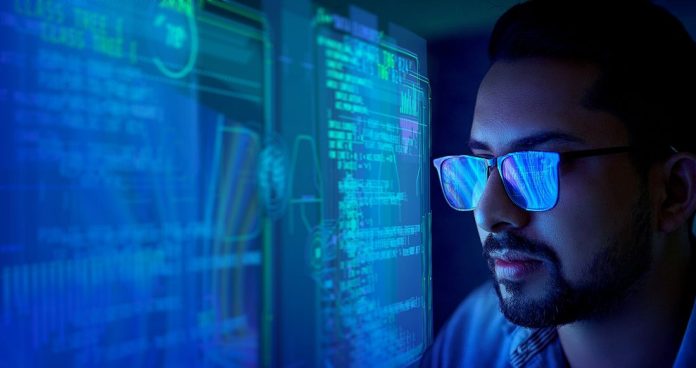Riyadh, Jan 30 (PTI) – Describing generative AI as a “pivotal point” in human evolution, a senior executive from an Indian tech giant highlighted that artificial intelligence will, for the first time, significantly impact knowledge workers. This means human skills must be continuously upgraded to remain relevant in an era of rapid technological change.
In an exclusive interview with PTI on the sidelines of a global conference in Riyadh, Sumanta Roy, president and head of Tata Consultancy Services (TCS) for the Middle East and Africa, explained that the company is actively training its employees to ensure that the “weakest part of the vulnerability chain” is not compromised.
He emphasized that the weakest link in this chain remains “human beings,” not machines, which are becoming increasingly intelligent as we navigate a future shaped by cutting-edge technologies.
Dubai-based Roy is attending the second edition of the Global Labour Market Conference (GLMC) in Riyadh, held under the patronage of King Salman bin Abdulaziz at the King Abdulaziz International Conference Center (KAICC).
The event, which spans two days, has drawn policymakers, industry leaders, scholars, innovators, and experts from over 100 countries in the labour sector. A ministerial roundtable took place on the first day of the conference, which kicked off on Wednesday.
Roy emphasized the significance of the conference, stating, “This is very important because the labour market is evolving in multiple ways. Similarly, when we look at technology, the same dynamic is at play, both here and in India. Every time a new technology emerges, people worry about how it will impact their jobs.”
“Traditionally, these were considered blue-collar jobs, but with the rise of generative AI, the perception is that, for the first time, knowledge workers will be affected,” Roy explained.
However, he argued that blue-collar jobs will remain unaffected.
“Generative AI isn’t going to wash dishes or fix cars. But it can write articles and summarize court judgments. For the first time, knowledge workers are being impacted—this is unprecedented in history since the Industrial Revolution. It’s a pivotal moment, and this change is happening globally,” the business leader remarked.
AI is a key topic of discussion at GLMC 2.0, with a semi-government company also showcasing its AI platform—an intelligent chatbot—at the event.
Roy attended the inaugural conference as well, but this time, he participated in a panel discussion where he addressed the potential impact of AI on the labour sector and beyond.
When asked about the impact he anticipates from AI over the next 5-10 years, Roy admitted, “It’s very difficult to predict. I wouldn’t even know what will happen in the next few months. Four to five years is a very long horizon.”
However, he emphasized that “generative AI is a pivotal point in human evolution. It will affect every sector—finance, the quality of life, both in positive and negative ways. You’ll see things like deepfakes emerging, which could be used for malicious purposes, such as breaking into bank accounts or even facilitating terrorist activities.”
At the same time, he noted the positive potential of AI, pointing out that it could help doctors make better decisions, enable engineers to plan more effectively, and allow teachers to enhance their teaching methods.
“It’s still evolving, but it will impact every aspect of human and societal life,” he said.
Roy shared that TCS has nearly 10,000 employees in the Middle East and Africa region, with a significant portion being from India, Saudi Arabia, Oman, the UAE, Egypt, Jordan, and South Africa.
In the age of AI and rapidly changing technologies, Roy stressed the importance of continuously updating the knowledge of employees to stay relevant. “First and foremost, we’re training our people. AI training covers 60-65% of our employees, who are receiving mid-level courses in AI. We’re also working on addressing the legal, ethical issues, and building the right safeguards around the technology,” he explained.
He emphasized that, despite AI’s growth, human expertise remains crucial in this evolving landscape. “If an AI writes a computer program instead of a human, we need to ensure two things: there are no security breaches and no backdoor access for hackers. Understanding system architecture, integration, testing, and documentation are skills that only humans can handle at this point. AI cannot do this.”
When asked which skills might remain uniquely human, Roy mentioned, “Pure analytical abilities, the ability to create things that are aesthetic—like this grand building hosting the conference—those are human qualities. AI can’t do that now, but who knows about the future?”
Roy also warned about the dangers of deepfakes and posed a thought-provoking question: “Could a copy of Michelangelo’s artwork be created? There are two programs—one generates art, and the other identifies differences. This iteration process, called an ‘adversarial network,’ eventually becomes so refined that it can’t tell the difference between the two. However, blockchain technology could potentially stop this kind of deception,” he added.



 Viesearch - The Human-curated Search Engine
Blogarama - Blog Directory
Web Directory gma
Directory Master
http://tech.ellysdirectory.com
8e3055d3-6131-49a1-9717-82ccecc4bb7a
Viesearch - The Human-curated Search Engine
Blogarama - Blog Directory
Web Directory gma
Directory Master
http://tech.ellysdirectory.com
8e3055d3-6131-49a1-9717-82ccecc4bb7a